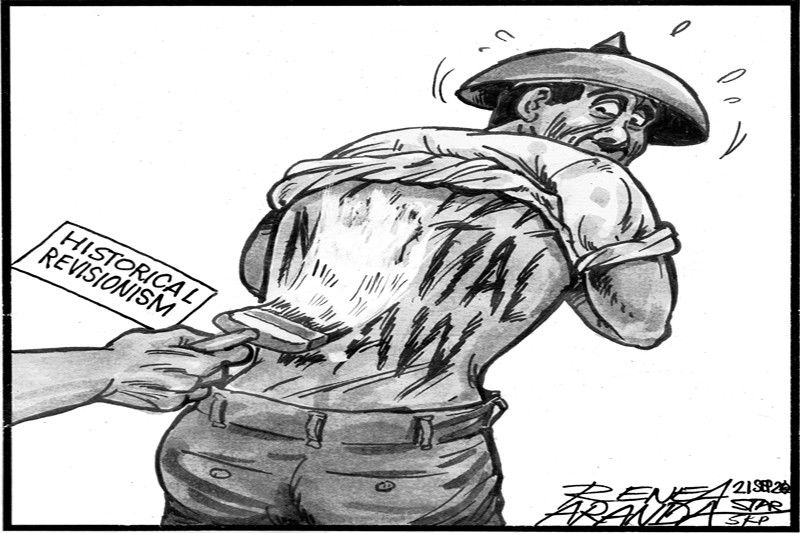EDITORIAL - Abuse of power

Forty-eight years is a long time to remember. In a country where lessons are not easily learned and mistakes of the past keep being repeated, however, people need continuing reminders about the consequences of greed and the abuse of power. Especially because those who benefited from the abuse are actively trying to rewrite history.
Barred from seeking a third term as president, Ferdinand Marcos found another way of perpetuating himself in power. Claiming to quell a communist rebellion, the Marcos regime faked an ambush on his defense secretary and used it as a pretext to place the country under martial law.
This was not the martial law imposed in Mindanao by the current administration to deal with the possible spillover of the Maute terrorist threat from Marawi City, but the real deal. Among the first moves of the Marcos dictatorship was to silence its critics, shutting down all independent media organizations and tossing key journalists into jail together with opposition leaders. Nothing was too small for the regime to exert its authoritarian rule: rock music was banned from the airwaves; long hair and the short shorts called hot pants were prohibited; hemlines were pulled down even in private schools.
State forces arrived in private homes, literally in the dead of night, armed with Arrest, Search and Seizure Orders to take whoever or whatever they wanted from the premises. Many of those who were picked up on the strength of ASSOs were severely beaten, electrocuted, burned with cigarettes, deprived of sleep and subjected to the water cure. Women were raped and subjected to the same forms of physical and psychological torture. Many of those arrested were never seen or heard from again; to this day, the country still has a long list of the martial law desaparecidos.
The abuse of power was extended to the economy as the conjugal dictatorship treated public coffers as their own. A word had to be coined for the world-class corruption of the regime: kleptocracy. Crony capitalism pushed the economy to the brink of ruin.
The country’s failure to put the plunderers of the dictatorship behind bars has to be one of the biggest reasons for the continuing prevalence of corruption in Philippine society, and for the historical revisionism under a Marcos-friendly administration, which allowed the dictator’s burial in the heroes’ cemetery. George Santayana famously warned about the consequences of forgetting the past. It would be a national tragedy if the Philippines forgot the horrors and abuses of martial law.
- Latest
- Trending




























